Zipp says new 858 NSW and 808 Firecrest wheels are lighter and faster than ever
Zipp's new 85mm and 80mm deep-section wheelsets are designed to lower wind resistance, gravity, rolling resistance and vibration losses - the four barriers to speed identified by the US company
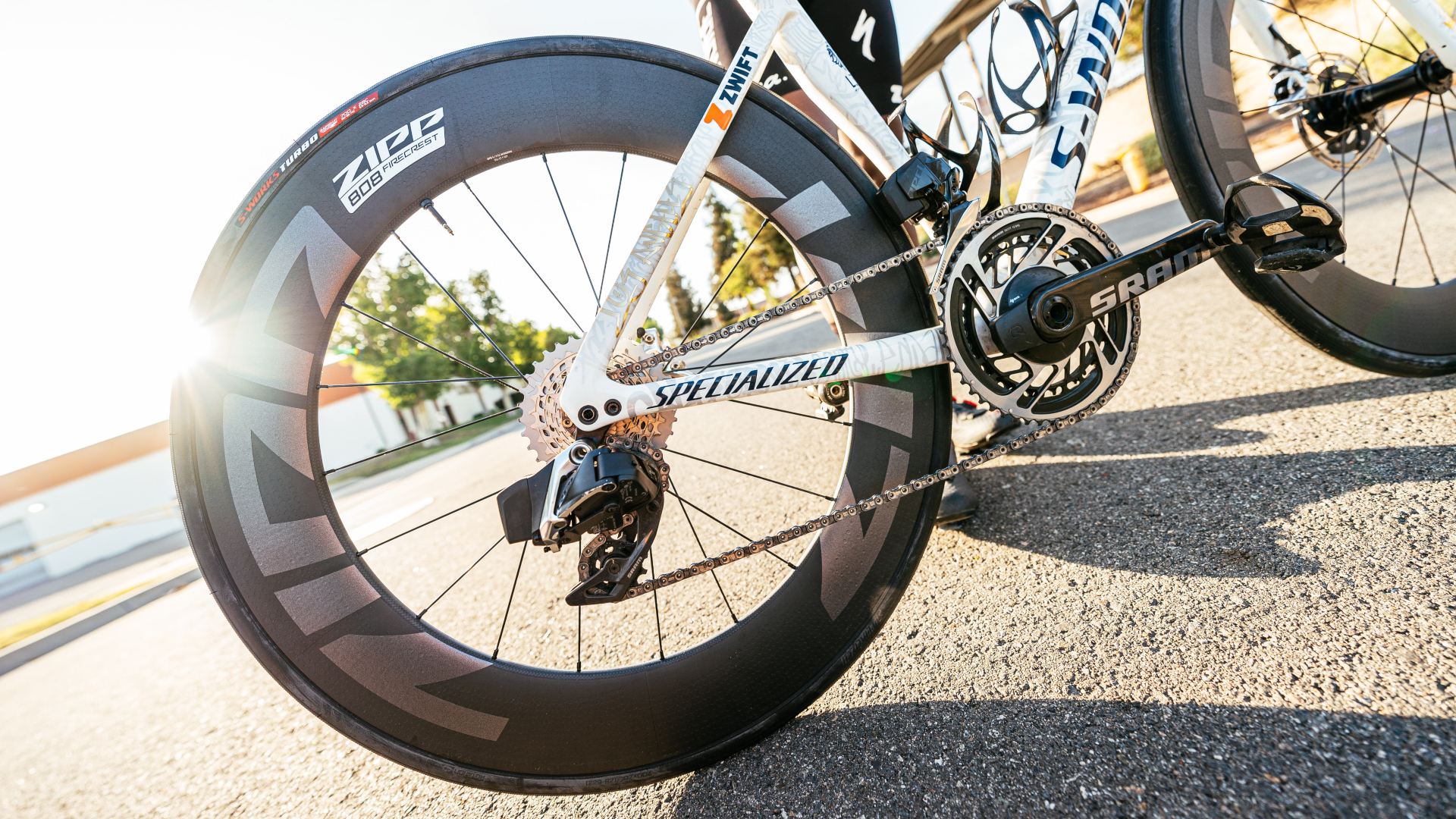
The latest race content, interviews, features, reviews and expert buying guides, direct to your inbox!
You are now subscribed
Your newsletter sign-up was successful
Given that both the 858 NSW and 808 Firecrest are deep-section wheelsets that appeal to those looking to save watts, it’s no surprise that Zipp’s update is focused on making them faster still. How it's chosen to achieve this is, however, more intriguing.
Rather than fixate solely on aerodynamic gains, Zipp’s wheel engineers have instead taken a holistic approach. By examining what it calls the four barriers to speed - wind resistance, gravity, rolling resistance and vibration losses - it's come to a belief that ‘fast’ is more than the sum of its parts.
The result are two tubeless disc wheelsets with a number of improvements, all designed to work in harmony with the hope of making you quicker, whether it's during a club 10, a triathlon or a city centre crit.
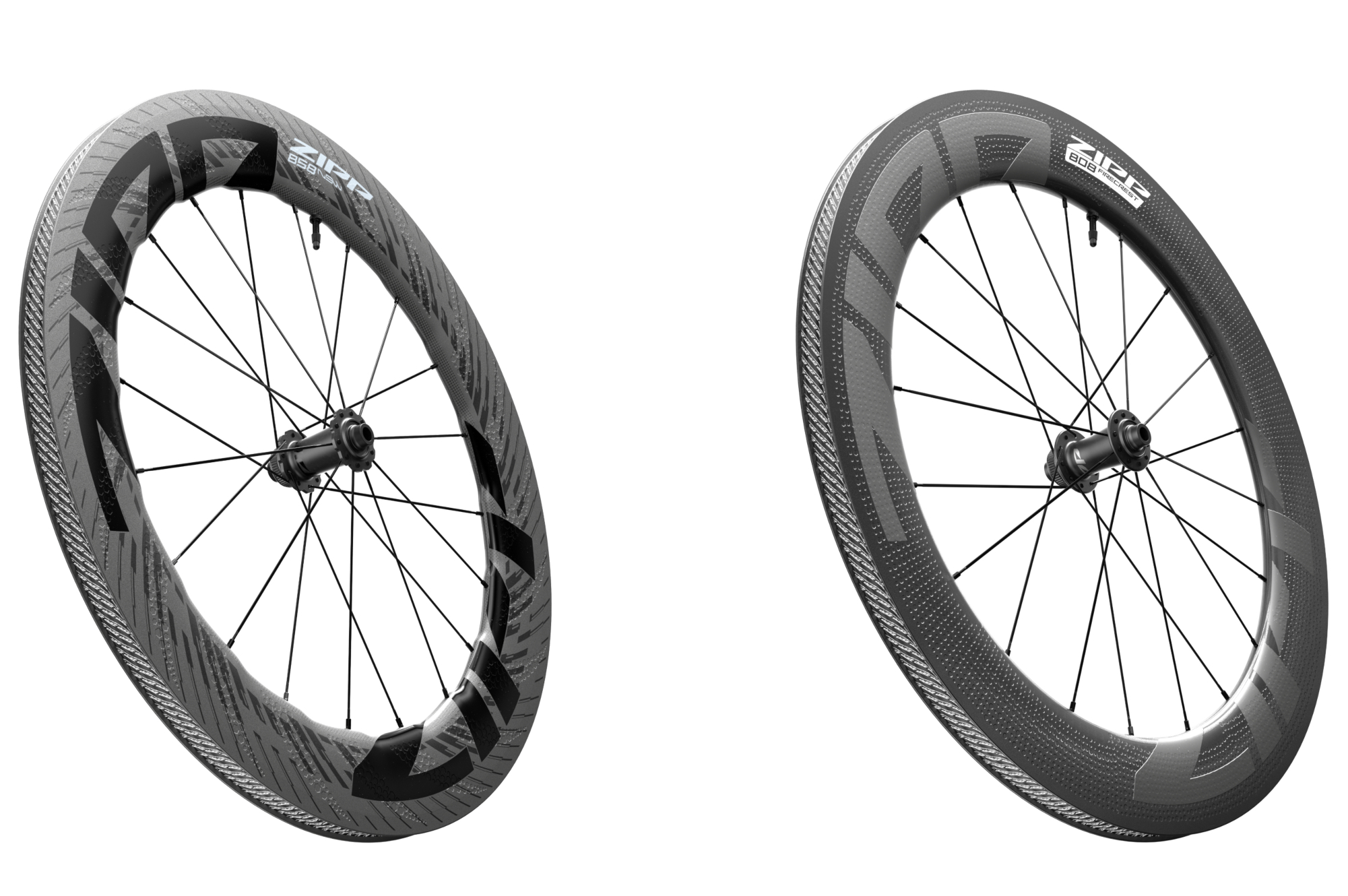
Both the 858 NSW and the 808 Firecrest use Zipp’s Total System Efficiency (TSE) technology. This combines a new rim laminate with a wider rim profile, best suited to tubeless tyres, to create an improved interface between rim and tyre. It’s a system already used in its 454 NSW, 404 Firecrest, 353 NSW, 303 Firecrest and 303 S wheelsets.
In the case of the new 858 that new rim laminate technology includes Carbon Internal Reinforcement (CiR). Developed over more than two years, Zipp has moved on from uniform rim thickness to variable widths and therefore varying sidewall flex. According to Zipp the forces exerted on a rim are disproportionate, so its bought reinforcements only where they’re needed. It means a 10% weight reduction from previous laminates without any compromise, Zipp claims, in stiffness, strength or durability.
Certainly both wheelsets are noticeably lighter. The new 858 NSW tips the scales at 1,530g, some 243g lighter than the outgoing model. For a wheel with a rim depth of 85mm it’s nothing short of astonishing. The 808 has shed even more weight, losing 274g for a new total of 1,635g.
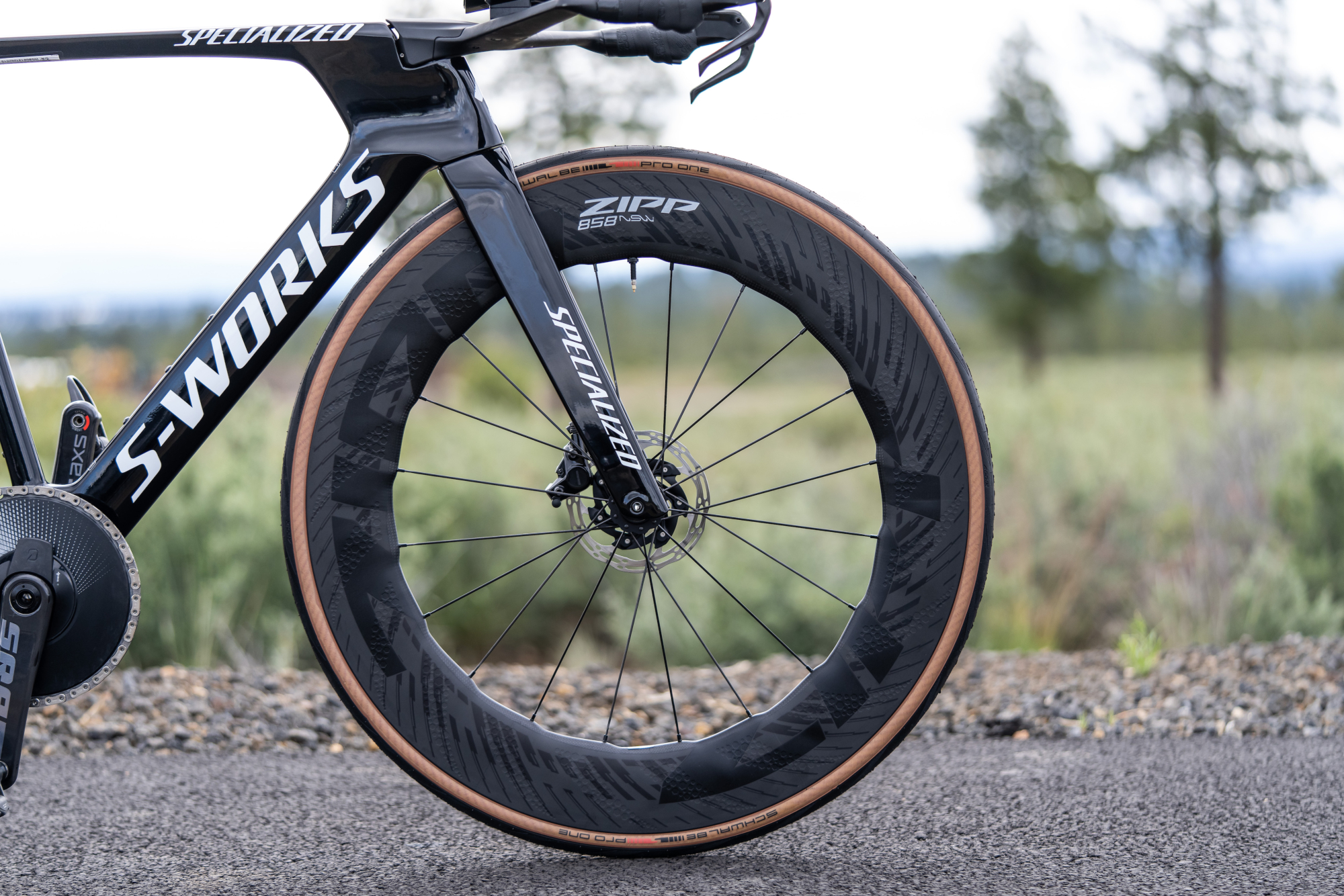
As for the wider rim profile, both wheelsets utilise a 23mm internal rim width. This allows for wider tyres run at lower pressure, which tests show lowers rolling resistance and improves grip and handling. It also aids vibration losses, which is essentially the power lost due to vibrations created by rough road surfaces, meaning that you and your bike go up when you really want to be going forwards. It’s been a significant area of focus for Zipp ever since it ran tests at the 2018 Kona Ironman, which helped disprove age-old beliefs that narrow, rock-hard tyres were the only way to achieve warp speed. These findings have provided the foundation for its wheel developments in general and its move towards tubeless and hookless technology specifically.
The latest race content, interviews, features, reviews and expert buying guides, direct to your inbox!
Combined with the hookless rim profile, which creates what Zipp calls a “more aero rim-to-tire transition”, it's said to add up to a more comfortable ride. Reduced rider fatigue is another component of Zipp’s philosophy that ‘fast’ is a composite of many interlinked factors. It’s hard to argue that fresher legs aren’t also likely to be faster legs.
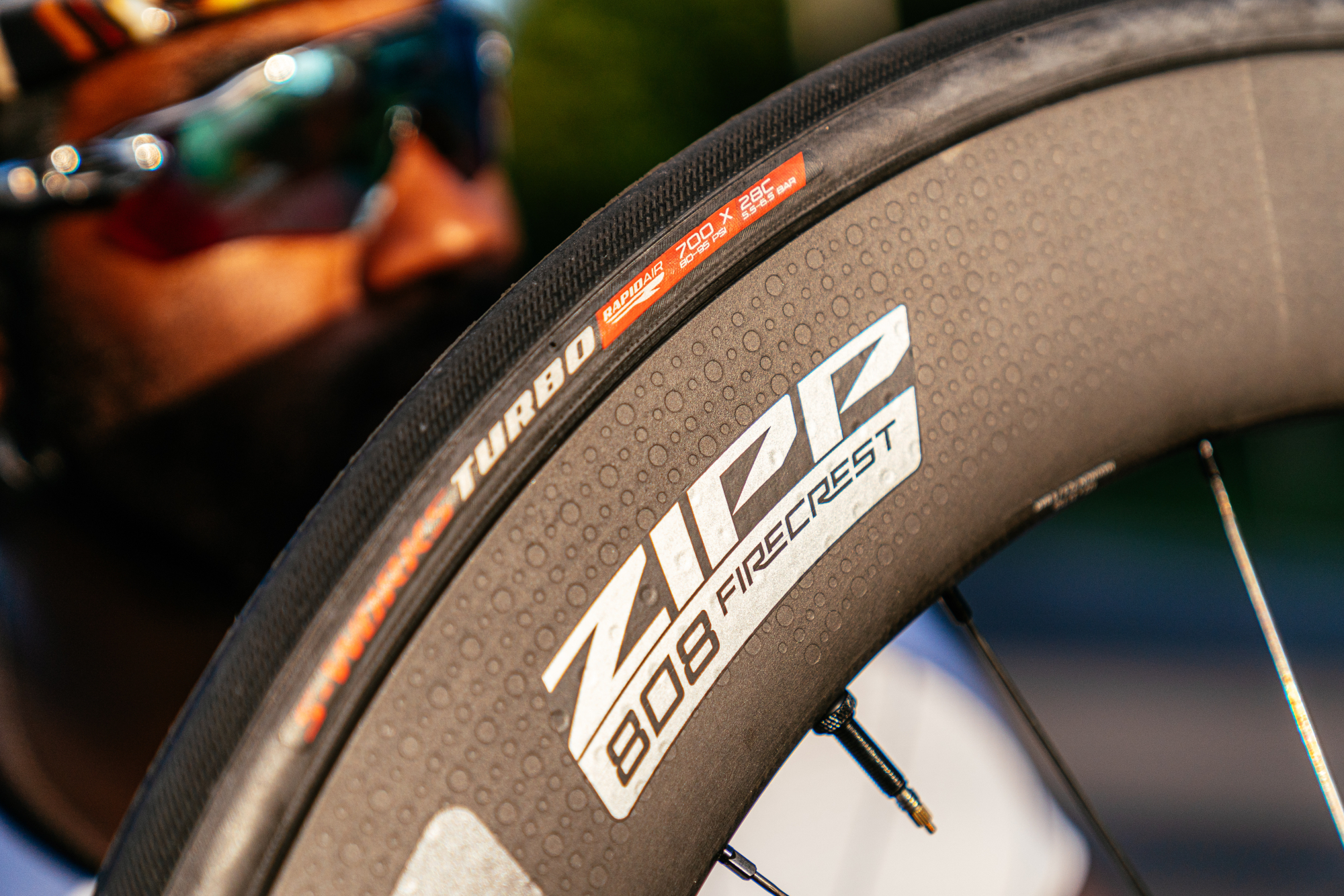
The importance of aerodynamics hasn’t been overlooked, however. The 858 NSW features the distinctive Sawtooth rim profile and HexFin Aerodynamic Boundary Layer Control (ABLC) dimple pattern, which are created and combined to improve “aero efficiency and crosswind stability”. The 808, which features an 80mm rim depth, also uses the ABLC dimples to better manage airflow around the wheels.
For a company embracing an integrated approach to making you go faster, it’s no surprise that the hubs of both wheelsets boast plenty of detail. However, the hubs used are those featured on the outgoing models. In the case of the 808 that’s the ZR1 disc brake hub, while the 853 uses the newest version of Zipp’s Cognition hub. The latter uses Axial Clutch technology, which disengages the ratchet mechanism when coasting to help reduce drag. A wave spring made from Sylomer and with 54 points of engagement is then used to re-engage when the rider starts to pedal again. It’s a system that Zipp believes is simpler and and as a result more durable.
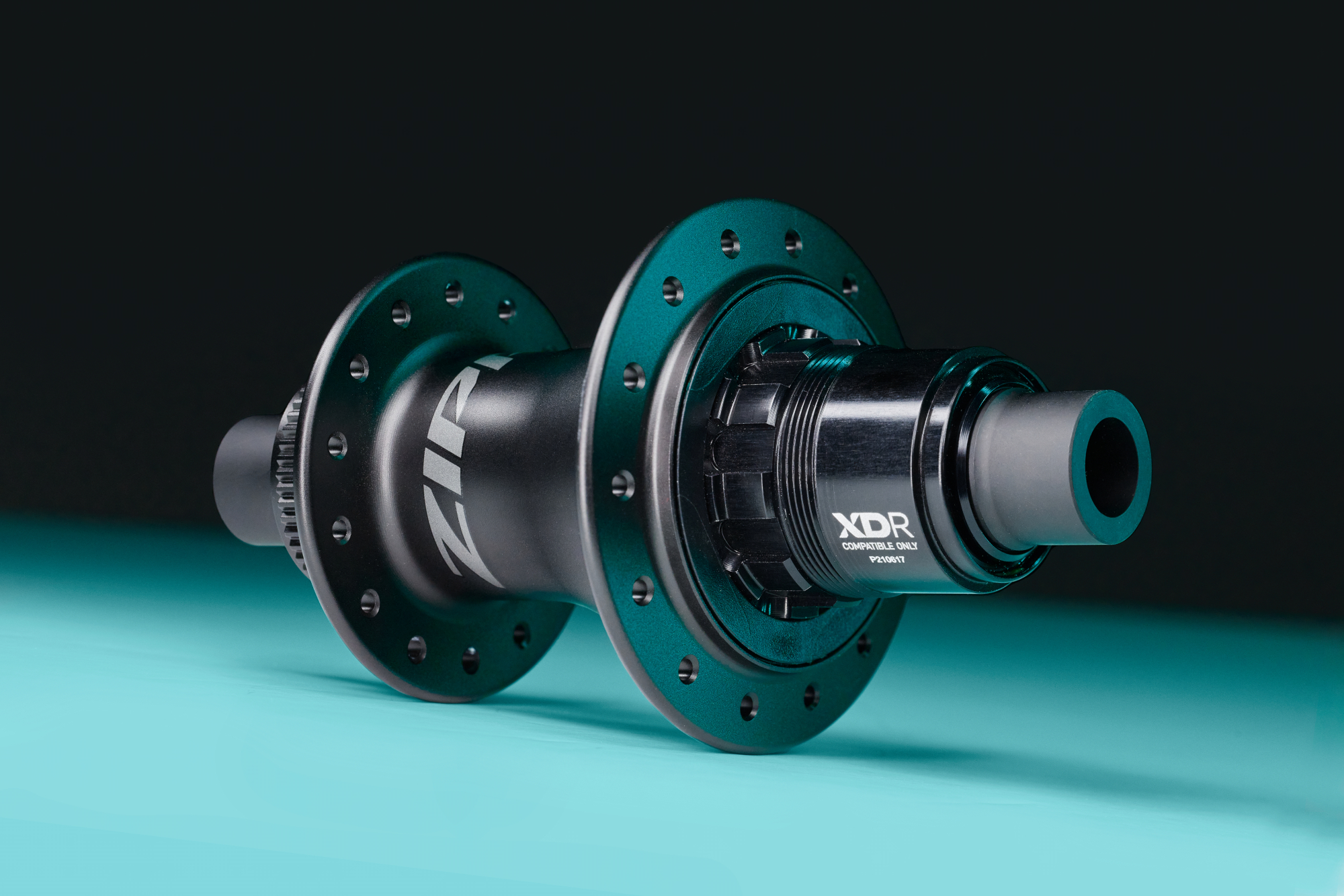
Rounding out the wheel builds are spokes courtesy of Sapim. The 853 NSWs use the CX-Ray model, while the 808s are built using CX-Sprint spokes. Both wheelset use 20 spokes, with a two-cross pattern on the front and a combination of two-cross on the rear non-drive side and radial on the rear drive side.
With the updates to both the 853 and the 808 Zipp appear to have gone all-in on hookless rims and tubeless tech, doubling down on the belief that ‘wider and lower’ is indisputable in the pursuit of not just comfort and grip, but also speed.
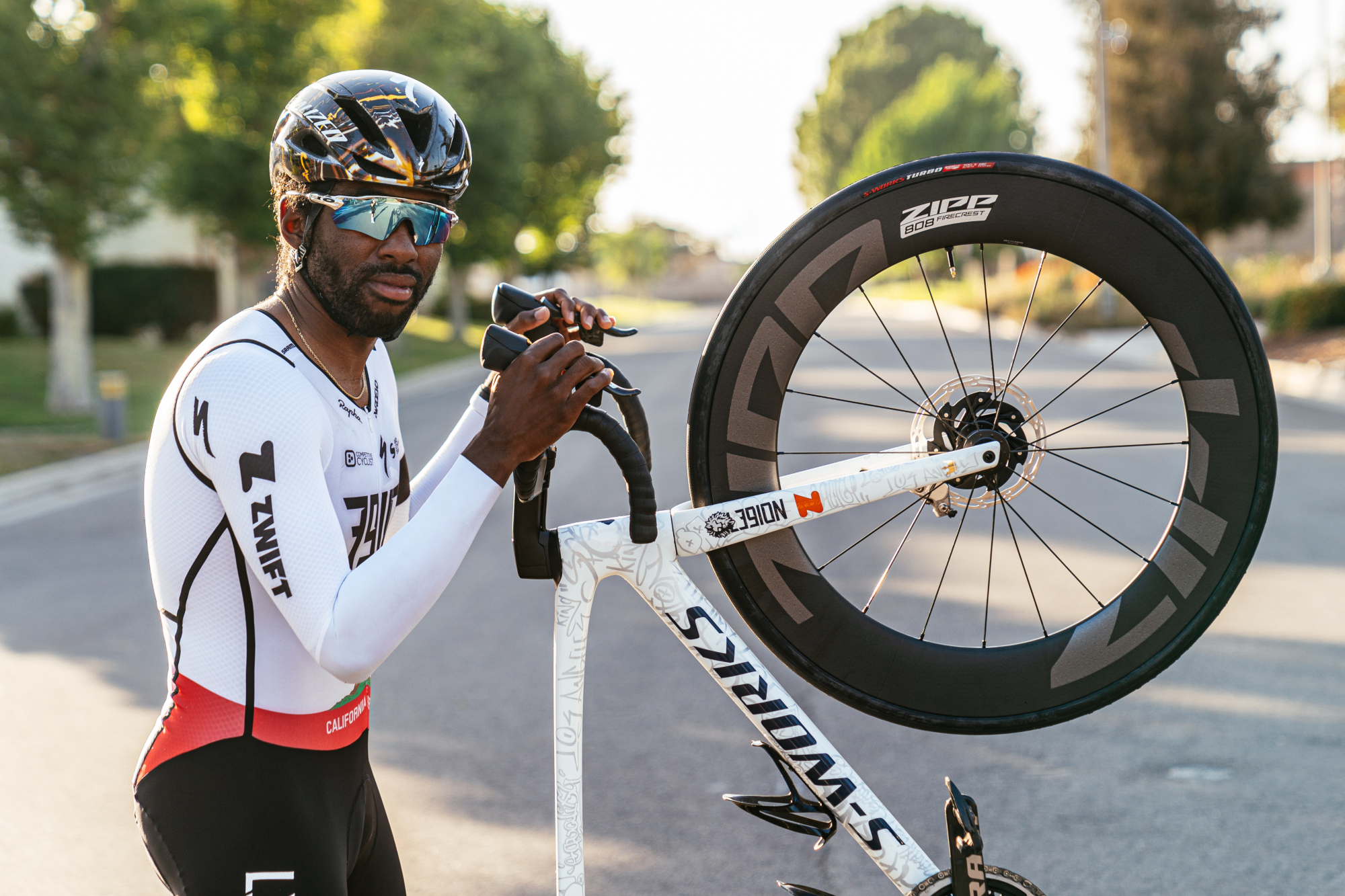
Specifications and prices
Zipp 858 NSW Tubeless Disc wheelset
Weight: 1530g (719g front, 811g rear - with 12mm thru-axle caps and XDR driver)
Price: £3,750 / US$4,400
Zipp 808 Firecrest Tubeless Disc wheelset
Weight: 1635g (752g front, 883g rear - with 12mm thru-axle caps and XDR driver)
Price: £2,235 / US$2,300
For more information visit sram.com
Luke Friend has worked as a writer, editor and copywriter for over twenty five years. Across books, magazines and websites, he's covered a broad range of topics for a range of clients including Major League Baseball, Golf Digest, the National Trust and the NHS. He has an MA in Professional Writing from Falmouth University and is a qualified bicycle mechanic. He has been a cycling enthusiast from an early age, partly due to watching the Tour de France on TV. He's a keen follower of bike racing to this day as well as a regular road and gravel rider.